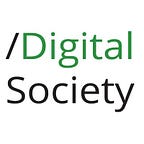Follow up post: Mini-Mission 1
Thank you to everyone that attended yesterday’s session in which we carried out a number of activities known as the ‘Mini-Mission’. Dave and Charlotte instigated numerous discussions about our own footprint on the internet and how this can be a good and bad thing.
Task One: SALT.agency
The first task of today's session was to use the social profile checker by SALT.agency. This allowed us to input information such as our name, home town, city of residence and university to see what is out there about us on the internet. Whilst some students managed to find their social media accounts quickly, some students struggled to find information on themselves at all.
One student in particular found this search tool quite restrictive by adding information such as home towns and schools. Which leads us on to…
Task Two: Google
Task two relied on good old Google search. Whilst some students found their private profiles such as Facebook and Instagram quite quickly, a lot of students couldn't find anything about themselves until a few pages in. Some people were actually quite startled by what they found, whilst expecting to find their social media, they found information on school teams and societies they participated in. Not only this, but some students actually found friends of theirs through searching their names.
Sometimes, what we found actually depended on what our names are. Whilst some people had really unique names, others within the class found that their names were quite common and other, perhaps more famous, people with their names took the spotlight. This made it a lot harder to find anything personal, which some students argued was a good thing. This would make it harder for employers to find us and perhaps stumble upon something that could be misinterpreted.
Task Three: Managing our on-line profile
We also asked you produce medium posts based on how you would manage your on-line profile. The submitted articles can be seen below:
The common theme throughout these articles is that managing your on-line presence can only be done by frequently checking which audience can see your post. This can be done by checking your social media privacy policy, such as Facebook, which can be changed every so often. These changes may only be minor but it is paramount to check if you wish some content to remain private.
You may want to use separate social media accounts for different things. For example, if you do not want your Twitter or Instagram followers to find a personal Facebook profile, perhaps use a different name so you are less easily located.
What is becoming an increasing problem is that social media is being used at a younger age. What we think and believe now could be drastically different to opinions we had at 13. Multiple celebrities have had old tweets/status updates dragged up that are perceived ad offensive. This obviously has a negative impact on their career and public image. Because of this, people sometimes make the decision to actually delete social media accounts all together, making it easier to manage your account. Is this right though, deleting your past so easily?
As much as it is important to monitor your own content, it is also important to keep your friends informed on what you want and don’t want to be tagged in. This ensures that your followers can’t see the image and your friends followers can’t find your profile.
Article 13 and Cambridge Analytica
Cambridge Analytica
During the session we also discussed Cambridge Analytica, a company that compiled data, which could be used strategically to influence election and referendum campaigns. Without Cambridge Analytica, it is possible that things such as the most recent presidential election and Brexit referendum could have had a very different end result.
Cambridge Analytica used data from millions of Facebook profiles in order to compile and use this data. Facebook claimed that the data was retrieved by legal means but was not used accordingly. They have claimed that the data retrieved has now been destroyed.
Article 13
Article 13 is part of an EU directive which aims to stop on-line giants such as Youtube and Facebook to using copyrighted material. This will affect ‘meme culture’ as memes are often based on copyrighted material. Whilst the internet is often seen as a difficult place to govern, article 13 hopes to apply rules and regulations to these spaces. Web giants are now in a place of responsibility in terms of what is posted on their website.
Whilst this seems like a positive movement to some, it is possible that Youtube creators that use copyrighted content will take a huge hit. ‘Youtubers’ such as gamers, will not be available to view within EU countries. This would reduce their income, whilst limiting what is available to residents within the EU. Is this possibly taking on-line policing too far?
What do you think?
Please leave your comments below on what you thought of the session, we’d love to see what ideas you have!
Please email digisoc@manchester.ac.uk with any questions or problems.
